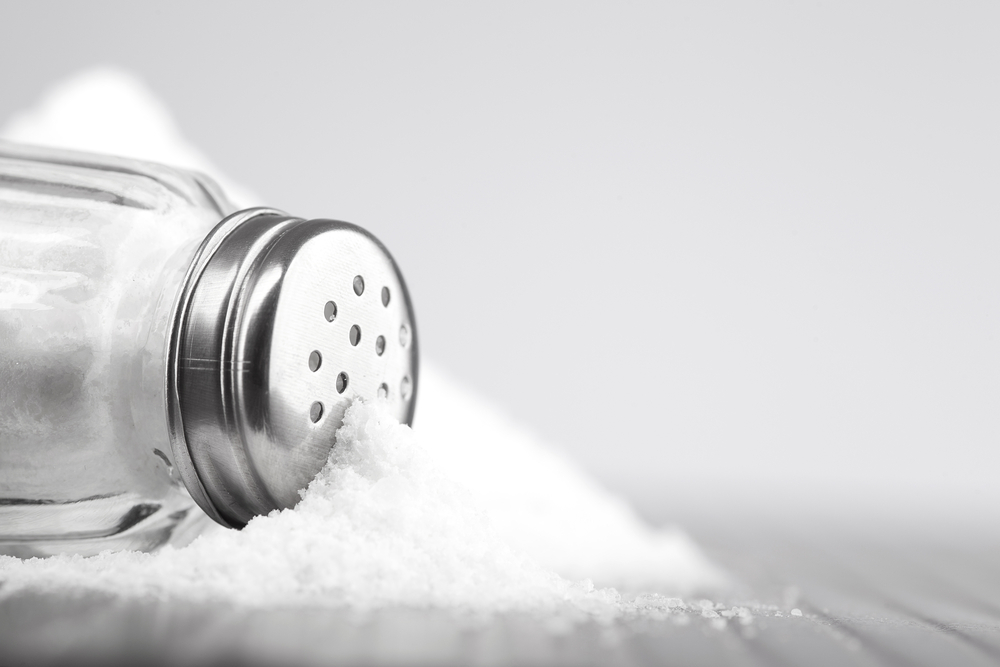High Salt Consumption Has No Effect on Multiple Sclerosis Symptoms or Prognosis, Study Finds
Written by |

Eating a diet high in salt won’t worsen or speed up multiple sclerosis (MS) symptoms, concludes a study of MS patients with clinically isolated syndrome (CIS). That contradicts earlier studies by researchers from Argentina, Vermont and elsewhere who warned of a possible link between high sodium consumption and MS.
The latest study, “Sodium intake and multiple sclerosis activity and progression in BENEFIT,” appeared in the journal Annals of Neurology.
CIS is a first neurological episode caused by inflammation or loss of the myelin sheath protecting neurons. Doctors consider CIS a stage of MS, or may diagnose it later as a kind of MS as more evidence becomes available.
The Phase 3 BENEFIT (Betaferon/Betaseron in Newly Emerging Multiple Sclerosis for Initial Treatment; NCT00185211) trial enrolled 465 patients with CIS, of which 150, or 39 percent, converted to clinically definite MS over a five-year period.
The study, conducted by researchers at the Harvard School of Public Health, the Johns Hopkins School of Medicine in Baltimore and various other institutions, monitored participants for salt levels in their urine roughly 14 times each over five years. They estimated 24-hour urine salt content from urine samples, since the amount of salt in urine reflects the amount of salt consumed.
Researchers found that higher sodium levels in urine did not lead to faster conversion rates to MS after six months. Nor did high sodium levels affect the MS relapse rate from the six-month point to the five-year endpoint. Using magnetic resonance imaging (MRI) to measure MS lesion activity in the brain, they found no relationship between sodium levels in urine and MRI activity. Nor did high sodium levels predict the development of new lesions during that same period.
“In this large, prospective study among patients with CIS, estimated 24-hour urine sodium levels were not associated with conversion to definite MS, or with MS activity or early progression as indicated by both clinical and MRI outcomes over the five years of follow-up,” authors wrote. “While our results suggest there is no association between sodium intake and MS prognosis, they cannot comment as to whether sodium intake modifies risk of developing MS.”
They added: “In addition, patients in the BENEFIT trial were primarily Caucasian and resided in Europe and Canada, and it is currently unknown as to whether similarly null results would apply to other populations and ethnicities.”


